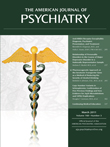Lessons From Jimmy
I'd seen Jimmy just a few days before at the nursing home, where he had been transferred from the hospital for palliative care. I was surprised to find him sleeping comfortably, not looking much different from when I had last seen him. I worried that because he looked strong and fit, it might take the metastatic cancer racking his body longer to kill him. He looked far from the cachexic, weak patient I had lost to lung cancer last year, also in late stage at the time of diagnosis. I know that my patients (all of whom have schizophrenia) are at high risk of lung cancer. While approximately 25% of the general population smokes cigarettes, studies suggest that up to 85% of people with schizophrenia smoke and that they smoke a greater number of cigarettes, inhale more deeply, and smoke further down the cigarette than other smokers. I know that as my patients age, the years of smoking heavily will catch up with them. I know that lung cancer is often detected late and that my patients are likely to be diagnosed even later, as they are less likely to have adequate medical follow-up and even when they do, their communication is complicated by thought disorder and delusional thinking, making it difficult for care providers to know when they are seriously ill.
When I arrived, Jimmy was lying flat in the bed, alone. His roommate had died, and now Jimmy had shingles, so I assumed he would not have a roommate for some time. I worried that he, such a social being, would feel lonely and abandoned. I looked at him a few minutes, observing what I could about his illness. Aside from the lack of cachexia, an IV, or oxygen, I was struck by his legs, which lay uncovered and were turned at awkward angles from the hips. I knew that he had lost the use of them because the tumor in his lung was pressing against his spinal cord. In the months before, coming weekly to my outpatient clinic, he had complained of various aches and pains in a jumble of thought-disordered phrases and ideas, which, as always, had included somatic delusions. Finally, after hearing a consistent complaint of chest pressure, our clinic's nurse practitioner pushed hard for an evaluation. But in the end, it was Jimmy who had taken himself to the emergency room, when he could barely walk any longer.
Before I said “Hello,” I needed a calming breath. With that breath, I took in all I had at my disposal: 10 years of experience as a psychiatrist, innate gifts of empathy and compassion, the strongly held Jewish belief that to visit the dying is a great mitzvah, and knowledge of Jimmy's personality, which enabled him to be grateful for anything any mental health provider ever did for him. I realized, therefore, that he would appreciate anything I might offer him.
With my “Hello,” he opened his eyes and smiled, and when he saw me his face lit up. “Hello. Dr. Weiner.” I stood at his bedside, listening as he incoherently, but with enough detail that I was able to follow, recounted the recent events in his life. He knew he was dying; there was “nothing they can do for me.” He complained of being “tied down” and “imprisoned”; if “they'd only untie these restraints,” he'd be fine. I lifted the sheet to find no restraints, so I decided to understand these complaints as metaphor, reflecting to him that he was not imprisoned but that maybe the pain in his back and his inability to move made him feel that way. We agreed he might feel less “choky” if his head was up, so we reviewed how to use the bed controls and the nurses' call button, to give him a greater sense of control and let him feel less like a restrained prisoner.
I found a chair and sat quietly, thinking of all that had brought me to this moment. Bringing emotional comfort to a dying patient was not exactly in my everyday job description, nor had I ever received any training for this moment in medical school or in my psychiatric residency. I felt uncertain about what my role was to be.
Jimmy asked, “Am I going to die?” I said, “We all die, sometime, Jimmy.” He told me he was afraid. I reassured him, while reminding him that he had always had people around him who cared for him and that he would be cared for now. He wanted to feel that he'd accomplished something in his life, and again I reassured him, by reminding him that he had touched so many care providers during his life's journey and that they would all be better for having known him. He said hopefully, “Dr. Weiner is here and will not let me die.” I told him gently that I did not have that power but that I would help make sure he'd get the care he'd need so that he would not suffer. He became calm and lay resting, eyes closed. After a while, I decided it was time to leave, and so I prepared myself to say good-bye. Again Jimmy looked up, brightened, and smiled. He thanked me. He smiled again when I said I'd be back next week.
I did not really think I was saying good-bye. I thought I'd be visiting again, any number of times, listening, reflecting, trying to be empathetic and reassuring, trying to stave off the loneliness. Instead, today I must reflect on Jimmy's passing, and I am glad for both of us that we had that visit.



